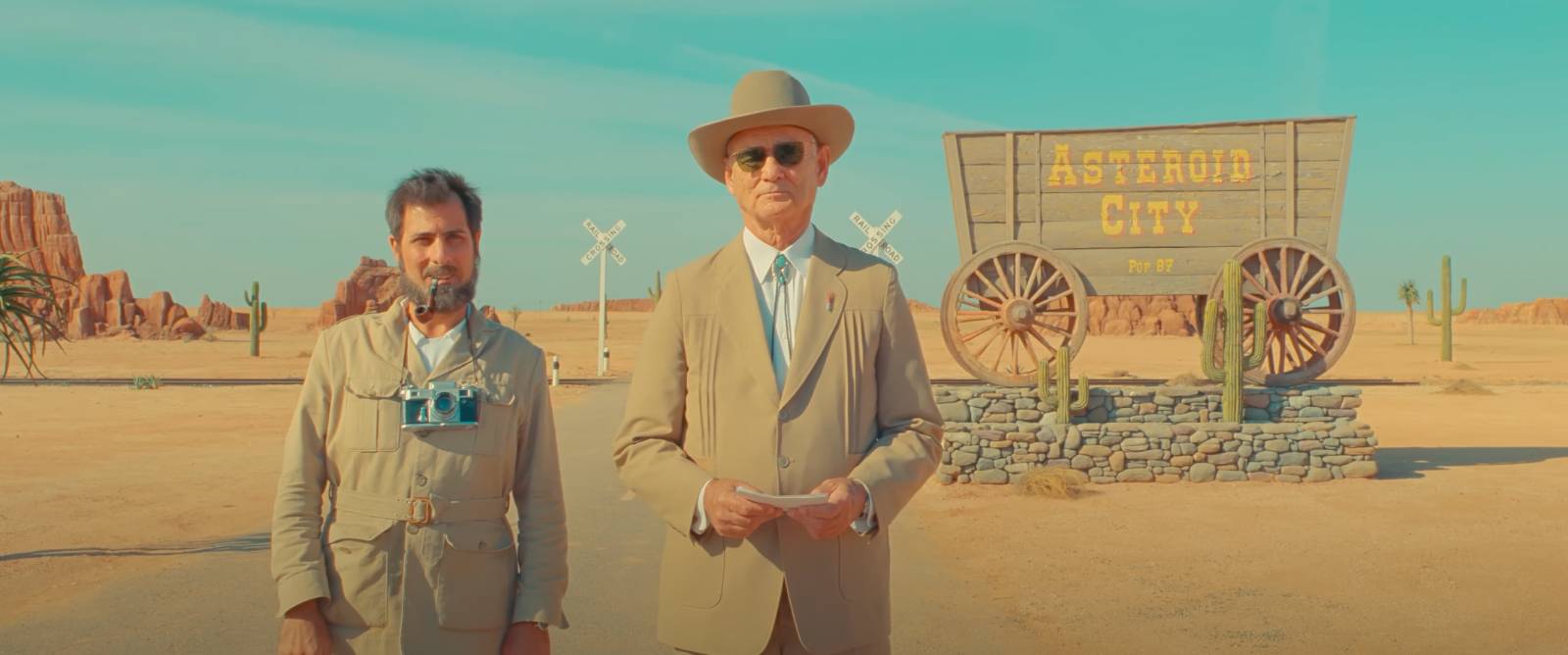When it came time for Focus Features to unveil the marketing for Wes Anderson’s Asteroid City, many were curious about the absence of one of the director’s most frequent collaborators: Bill Murray, who appeared in nine previous features and was initially announced as part of the case. After all, Murray took part in a Q&A from the set while promoting The French Dispatch at the New York Film Festival. Some thought his absence may have to do with allegations of inappropriate behavior on the set of Aziz Ansari’s since-canceled directorial debut. However, Wes Anderson has now set the story straight.
Murray was set to play the film-within-a-play-within-a-film’s motel manager, but had to drop out. “Normally, I don’t think it’s such a nice idea to tell everyone the person who didn’t end up in the movie,” Anderson told The New Yorker. “But Bill got covid in Ireland, and it was four days before he was supposed to work.” So, with production already underway, Anderson put a call out to Steve Carell who came on board. “The movie was a jigsaw puzzle of actors’ schedules, so we couldn’t wait,” said Anderson. “We were extremely lucky that Steve Carell said yes—and was perfect in the part.”
After he was all healed up, since Murray couldn’t stay away from a Wes Anderson set, the actor headed over to the Spain locale despite his original part already wrapping. While there, Anderson devised two new characters for him: Jock Larkings, “the head of the Larkings Corporation, a fictitious armaments-and-aeronautics company in the film,” as well as Tab Whitney, an actor playing Larkings. In deliciously meta Andersonian fashion, they shot a retro trailer in which Murray plays his character that was cut for the film in a promotion of the production.
“We made this very peculiar thing that is just a spontaneous creation before the set was going to be struck down. It was the last thing we did. And then we put all our things in the golf cart and drove off into the sunset,” Anderson said. “It’s an odd little piece, but it does sort of say something I feel about the movie.”
Featuring a shout-out to Anderson’s own American Empirical Pictures as well as Jason Schwartzman’s Jones Hall relaying a beautiful encapsulation of the film’s ethos, it’s a humorously and accurately stilted throwback to these kinds of 1950s promotional pieces.
Check it out below along with our discussion of the film.

